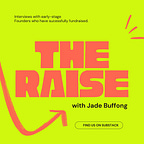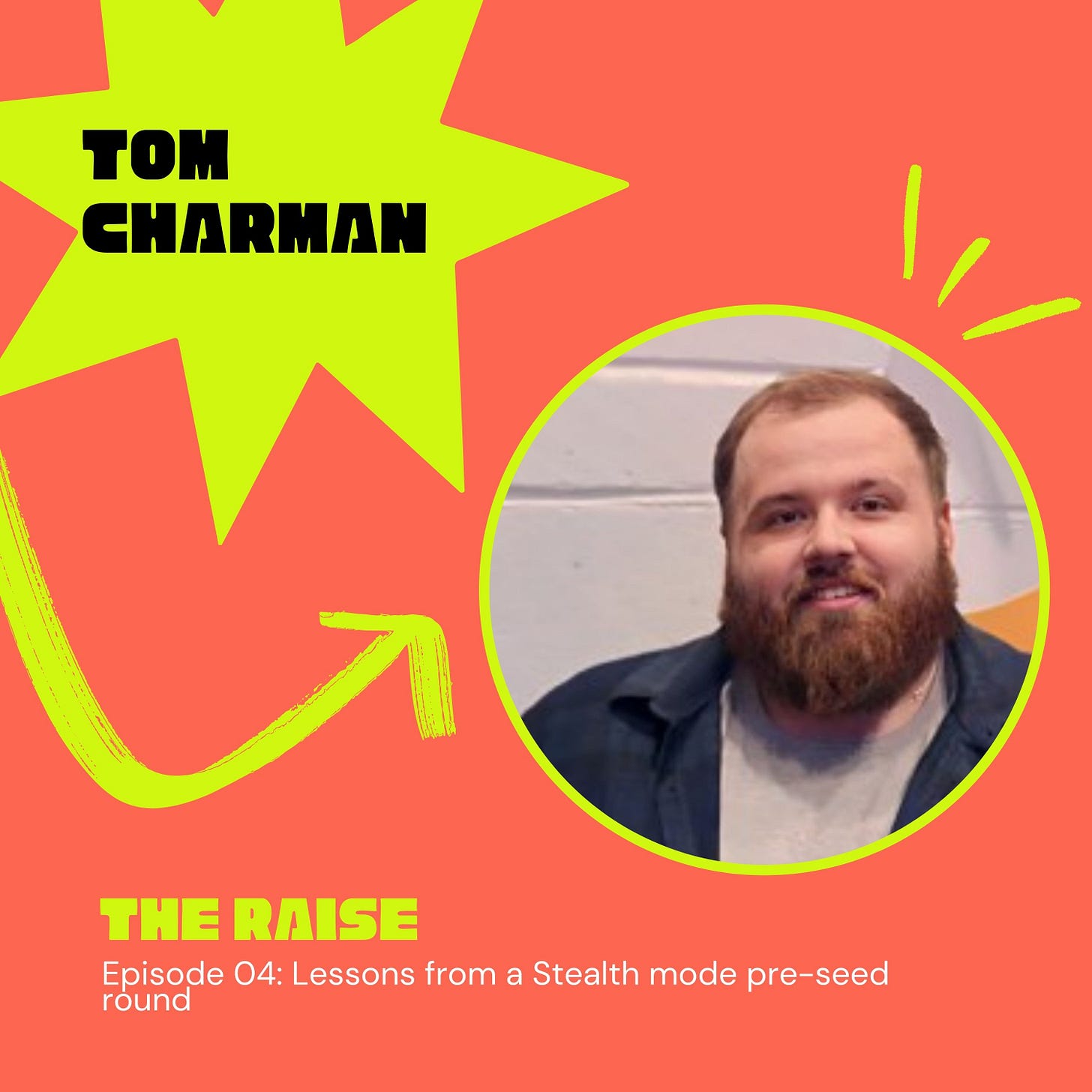NOTE TO ALL READERS: The 240 day finale will be with you on Thursday! Apologies for missing last weeks publication day as I was unwell again. Getting back on track now and looking forward to sharing what I've learned with all of you 🙏🏾.Tom’s Fundraising Journey
Tom is a data scientist with a decade of building companies under his belt (in travel tech and ed tech), and has spent a great deal of time building AI models for high risk environments. Tom’s team are building their company in stealth mode — which means the company name is still private — and they’re building a platform that will ultimately help product teams around the world run the right product experiments that lead to the better results.
The problem: product teams often struggle to identify which experiments they should be running. 9/10 teams are working with homogenous data that makes it an uphill battle to decide what they should test right now.
The solution: their AI platform helps product teams to better understand customers by predicting behaviour patterns and reduce the risk of running the wrong experiments (that ultimately wastes a tonne of time and money).
After building their waitlist and initial customer base, Tom and his team closed a multi-million pre-seed round in all of 4 months (from predominantly US investors), and we’re discussing the ins and outs of their latest episode of The Raise.
In this episode, we cover:
[01:11] About Tom and why he started his AI tech company
[05:31] What stage were you at with the product before you started fundraising?
[09:34] What are the differences you've noticed between UK and US investors?
[13:26] Can you walk us through how you and your team landed on $2 million to raise?
[17:18] What are 2-3 other things founders need to consider before fundraising?
[22:18] What decisions did you and the team make about the VCs you would approach?
[29:12] How did you kick-start the process and start looking for investors?
[34:10] Is cold outreach any better in the US than it is in the UK?
[39:07] What challenges did you face as you were building your network and community?
[42:29] How do you keep a spark or an interest with investors?
[48:46] How have you balanced fundraising with running the business?
[52:22] How did you navigate conversations around traction with investors when you were pre-product launch?
[57:23] If you could go back and do it again, what would you do differently?
Some takeaways:
For Founders raising 💰
When you're building, consider what customers are and aren't willing to pay for right off the bat. If you can build a product with monetisation in mind at the beginning (and letters of intent), that goes a long way to proving to investors that you can generate revenue.
When you're thinking about how much to raise, consider what the target or benchmark is that you want to hit before you get to your funding round. That allows you to create a narrative to share with your community and investors alike. BONUS: When you figure it out how much you want to raise, add an extra 20-30% (because anything could happen, and you don’t want to cut your runway short).
Remember, some investors will raise an eyebrow if they feel you aren’t raising enough.
Never give away more than 20% for your first round, bear in mind that you may have future rounds to follow on to. But bear in mind that the percentage for your first raise will vary depending on where you are in the world, in San Francisco, for example, they aim for no more than 10%.
Apply for accelerators and grant programs as they will help you to build a network quickly. Demonstrating that a group of people are willing to take a bet on you goes a long way to proving that you’re worth the risk.
Good VCs will give you a no, quickly, and with some feedback. If you're in conversations with an investors who is a perfect fit and they say no, don't ask them to introduce you to other people in their network as their decision not to invest could be considered a red flag.
For aspiring founders 🤩
VCs are often very well connected so it’s worth considering this route if you believe that your business can be venture backed.
Listen now on Apple, Spotify, Overcast, and YouTube.
Where to find Tom Charman:
Where to find Jade Buffong:
• LinkedIn | Newsletter
Lightning-round answers:
What communities do you recommend for early-stage founders?
Sigma Squared (if you’re under 26), OPUS and Foundrs
Top 3x books founders (or aspiring founders) should read.
How to Create a Mind: The Secret of Human Thought Revealed by Ray Kurzweil
Thinking Fast And Slow by Daniel Kahneman
The Coming Wave: AI, Power & The Twenty-First Century’s Greatest Dilemma by Mustafa Suleyman
What should Founders be keeping an eye on?
Elections, proxy wars, market downturns (the macro stuff - it has a huge impact on your business)












